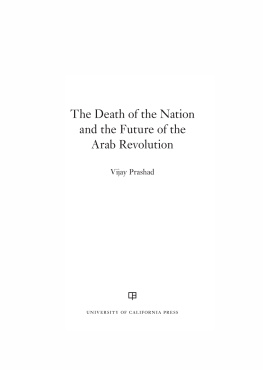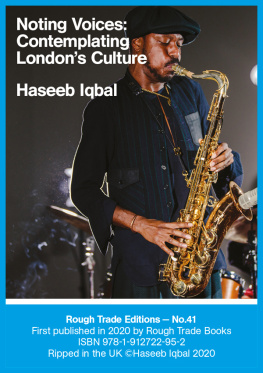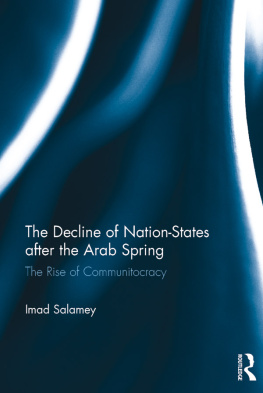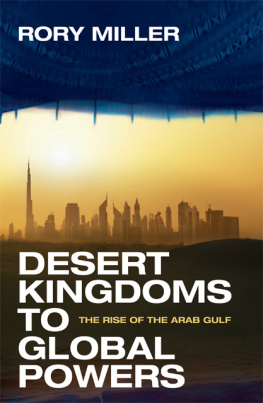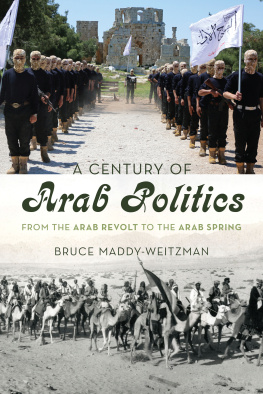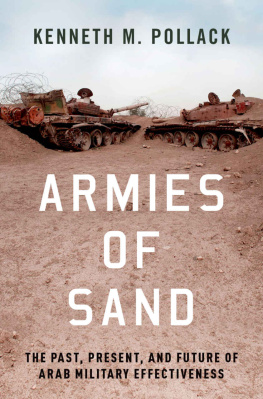ROUTLEDGE LIBRARY EDITIONS:
THE ARAB NATION
THE FUTURE OF THE ARAB NATION
THE FUTURE OF THE ARAB NATION
Challenges and options
KHAIR EL-DIN HASEEB, SAAD EL-DIN IBRAHIM,
ALI NASSAR, IBRAHIM SAAD EL-DIN
AND ALI EL-DIN HILAL
With a new introduction by
ROGER OWEN
Volume 2
First published in 1991
This edition first published in 2012
by Routledge
2 Park Square, Milton Park, Abingdon, Oxon, OX14 4RN
Simultaneously published in the USA and Canada
by Routledge
711 Third Avenue, New York, NY 10017
Routledge is an imprint of the Taylor & Francis Group, an informa business
1991 The Centre for Arab Unity Studies
All rights reserved. No part of this book may be reprinted or reproduced or utilised in any form or by any electronic, mechanical, or other means, now known or hereafter invented, including photocopying and recording, or in any information storage or retrieval system, without permission in writing from the publishers.
Trademark notice: Product or corporate names may be trademarks or registered trademarks, and are used only for identification and explanation without intent to infringe.
British Library Cataloguing in Publication Data
A catalogue record for this book is available from the British Library
ISBN: 978-0-415-62197-7 (Set)
eISBN: 978-0-203-10593-1 (Set)
ISBN: 978-0-415-62394-0 (Volume 2)
eISBN: 978-0-203-10499-6 (Volume 2)
Publishers Note
The publisher has gone to great lengths to ensure the quality of this reprint but points out that some imperfections in the original copies may be apparent.
Disclaimer
The publisher has made every effort to trace copyright holders and would welcome correspondence from those they have been unable to trace.
Figures
Tables
Acknowledgements
The Centre for Arab Unity Studies wishes to express its gratitude and appreciation to the Arab Fund for Economic and Social Development, which provided the greater part of the funding for the project of the prospective analysis of the future of the Arab world. This book constitutes the final report of the project, which was originally published in Arabic, and its translation and publication in English was made possible by a special grant from the Fund.
Our gratitude is also due to the Arab Monetary Fund, the Organization of Arab Petroleum Exporting Countries and the Iraqi Fund for External Development for their help in covering part of the project implementation costs.
However, the Centre for Arab Unity Studies bears sole responsibility for the implementation of the project and the studies to which it gave rise. The opinions expressed in this book do not necessarily reflect views held by the Centre for Arab Unity Studies. CAUS is located at Biet Al-Nanah Building, Basra Street, PO Box 1136001 Hamra, Beirut 20342407, Lebanon.
Conventions
Where billions are referred to in this text they are US billions (i.e. 1,000 million).
Introduction to the 2012 Edition
Two decades have passed since this Report was first published, a period culminating in the totally unexpected events of the Arab Spring. Now, suddenly, and after years of political stagnation under the rule of an increasingly elderly group of Presidents for Life, the stage is set for the re-appearance of ideas and projects from more thoughtful times, Arab unity and intraArab cooperation among them.
Looked at in terms of these lost decades, the Reports most prescient words are contained in the first of its three scenarios that of more of the same notably section 4 entitled The Present: positive and negative aspects. For here is set out a description of the factors making for that across-the-board trend away from political pluralism in the early post-independence period towards a concentration of authority in the person of a single individual, the stifling nature of which did so much to provoke a number of national populations to revolt in 2011. (93) In such grim circumstances, it is not at all surprising that there was also so little movement with respect to the Reports two other possible scenarios, those of Arab coordination and cooperation and those of Arab unity.
In what follows I will examine all three scenarios in the light, first of how they analyze the trend towards personalized rule, then of their suggested relationship between Arab unity and a popular desire for meaningful change.
As the Reports section on Freedoms and participation notes, many of the newly-independent Arab states, notably those in the so-called northern tier, began with Western-style democracies, a feature explained by the middle-class origins of the active political elite and by the role of the parties they founded to pursue the anti-colonial, pro-independence project. Yet, as also noted in many of the other histories of the period, the small fledgling modern society this elite managed to create was beset by a number of negative factors such as the division of the parties into power-hungry factions and the intervention of foreign powers hostile to the liberal trend. (923)
Nevertheless, there is more to it than that. Given the fact that much the same process can be observed in many other parts of the non-European world, whether in Asia, Africa and Latin America, it would seem that a more global set of explanations are required, many of them set out by Mohamed Ayoob in his seminal, The Third World Security Predicament (1995)1 where he argues that common to all newly independent states was a desire to protect their own, often fragile, sovereignty from further western intervention by centralizing the power of the new rulers. As he so trenchantly remarks, the context was one of a dangerously inverse relationship between the first and second worlds search for security and the third worlds sense of its own insecurity.
For much the same reasons, the post-independent Arab regimes also set about removing as many of the local traces of western influence in the shape of foreign schools, the use of foreign languages and often foreign-speaking local communities, as they could, a process which, in turn, paved the way for the huge build-up of bureaucratic and statist power designed to replace the former more pluralist, more free-market systems of the colonial era.
To this I would add two other factors as well. One is the importance of the Cold War (nowhere mentioned in this Report), which caused successive US administrations to prefer strong security states as their allies, rather than those which tolerated popular movements of a leftist or communist type. And the second, now once again at the top of the Middle Easts political agenda, was the initial project for creating both the structures and the practices required for a working pluralist democracy. As the history of Egypts previous revolutions, in 1919 and 1952, well demonstrates, it is one thing to replace an unjust regime with a new political structure involving a constitution and, at least initially, open elections, quite another to get it to function in a way considered equitable and fair to all.
Given all the obvious problems involved it may be that, in the end, the Arab world will be fortunate to come out of this present round of popular revolutions with the existence of just one or two working democracies where power rotates between contesting parties, those in Tunisia and Egypt looking to be the most likely candidates. Happily they are the two which also seem the most likely to have a positive demonstration effect on the rest of the Arab world, given Tunisias role in starting the whole revolutionary process in the first place and Egypts traditional status as an incubator of new political ideas.



